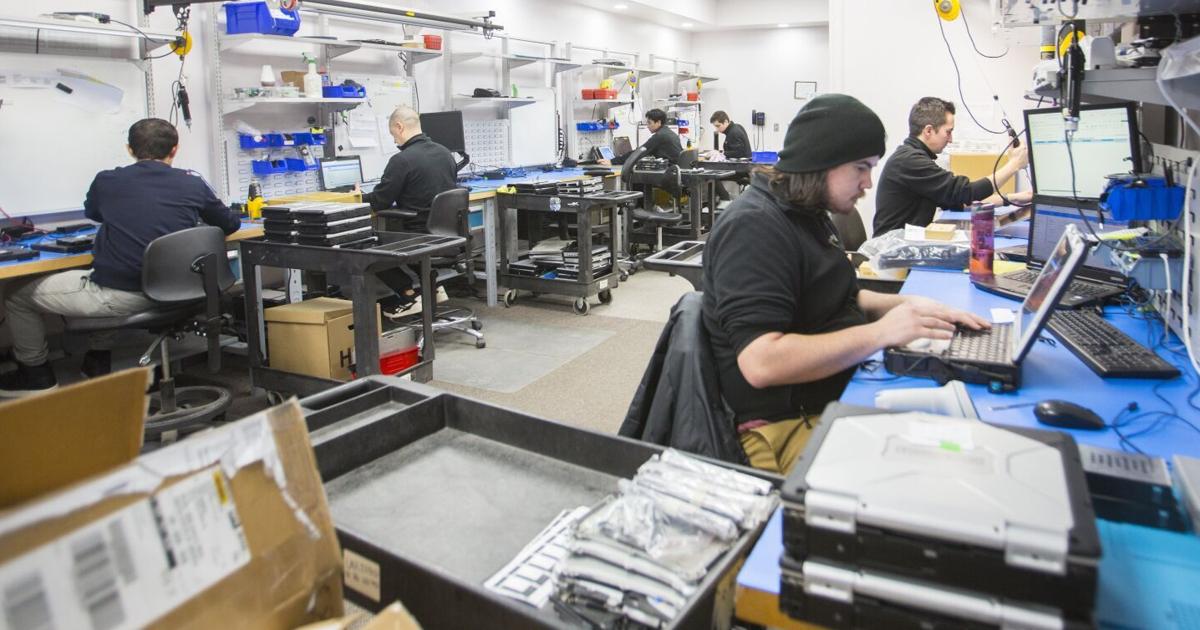Better Business Bureau warns AI technology helps fake voicemails seem more authentic

Everyone knows to look for phony emails — they can appear in your email inbox or even at work. Scammers can easily make messages that appear to come from anywhere, like your boss’s email account or a close family member. But what about phone calls and voicemail?
Scammers can use new artificial intelligence technology to mimic the voice of someone you know and create a phone call or voicemail recording. This voice cloning technology has recently advanced, and anyone with the right software can clone a voice from a very small audio sample.
Here are some examples of how the scam works:
You’re at work and receive a voicemail from your boss. In the message, they instruct you to wire thousands of dollars to a vendor for a rush project. You recognize that the request is unexpected, but it’s the boss’ orders, so you make the transfer. A few hours later, you see your boss and confirm that you sent the payment. And that’s when you find out there’s a big problem — your manager has no idea what you are talking about because the message was fake.
In a similar scenario, you may be at home and receive a phone call or voicemail from a family member who says they are in an urgent situation, such as an accident or a medical emergency. They sound just like your family member and provide convincing details. When they ask for money to be sent immediately via a digital wallet payment app like Venmo or PayPal, you do so, and then later learn the story wasn’t true. Unfortunately, once a payment transfer is accepted on a cash app, your money is gone.
Several individuals have shared their recent experiences with fake emergency calls on BBB’s Scam Tracker page, including this one posted Jan. 18: “Call received using my son’s voice asking I call his lawyer ‘Mark Bailey’ and that he had already been in touch with him. On calling the number, I was advised my son had been in a serious car accident with the other person, an eight-month pregnant lady who had been taken to the hospital, and that he was being held pending the posting of a cash deposit of $8,000. Was told NOT to call him. Due to the skepticism of my wife and a teller where I went to withdraw funds, I called my son and learned that he was fine and all of the above was a scam!”
With the U.S. now amid the 2024 election season, scammers may also use the technology to mimic candidates’ voices to sway voters or potentially drum up “donations.” You’ll want to stay alert to how technology can be used to make calls appear to be authentic to avoid being pulled into sharing personal details or a payment to a bogus cause.
Tips to help you avoid AI voice cloning scams:
— Resist the urge to act immediately. No matter how convincing a phone call or voicemail may sound, hang up or close the message if something doesn’t feel right. Call the person who claimed to have called you directly with the phone number you have saved for them. Don’t call back the number provided by the caller or caller ID. Ask questions that would be hard for an impostor to answer correctly.
— Don’t send money if you’re in doubt. If the caller urgently asks you to send money via a digital wallet payment app or a gift card, that may be a red flag for a scam. If you wire money to someone and later realize it’s a scam, you should contact your local law enforcement to file a fraud report.
— Secure your accounts. Whether at work or home, you should set up multifactor authentication for email logins and other changes in email settings. At work, verify changes in information about customers, employees or vendors.
— At work, train your staff. Create a secure culture at your office by training employees in internet security. Make it a policy to confirm all change and payment requests before transferring. Don’t rely on email or voicemail.
BBB has two upcoming events to arm our community with more protections from fraud:
March 7: BBB is partnering with experts from the Federal Trade Commission, Tennessee Attorney General’s Consumer Affairs Division, Tennessee Department of Commerce & Insurance and AARP to provide a Fraud Summit as part of National Consumer Protection Week. Panelists will share tips on common frauds targeting our area and will also take questions from attendees.
The event will be 10:30 a.m.-noon at the Family Justice Center, 5705 Uptain Road in Chattanooga. For more information, call 423-287-5540.
April 13: BBB will host our free bi-annual Shred Day event 9 a.m.-noon in the parking lot of Coca-Cola Bottling Co., 2111 W. Shepherd Road in Chattanooga. (Location is near Exit 1A/Airport off Highway 153).
Residents can bring paper documents and hard drives containing personal information to be destroyed. Electronics can also be brought for recycling and outdated or unneeded prescription drugs can be dropped off for safe disposal.
Please limit documents to three large trash bags per person and limit hard drives to four per person. For more information, please visit bbb.org/Chattanooga or call your BBB at 423-266-6144.
Michele Mason is president of the Better Business Bureau in Chattanooga.
Staff photo / Chattanooga Better Business Bureau President Michele Mason



